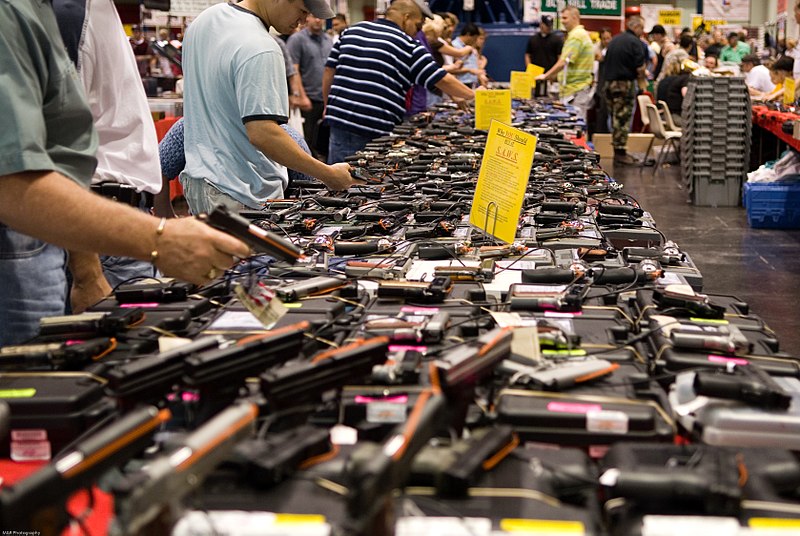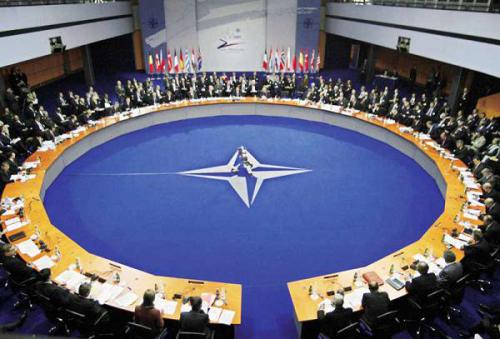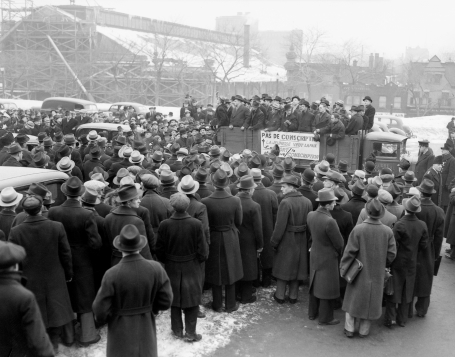This is the first of a three-part series analyzing gun violence in the United States. Part I focuses on the power the NRA wields in shaping conservative opinion and influencing lawmakers.
A Tale by Numbers
On Sunday, October 1, a 64-year-old American-born man unleashed a torrent of bullets upon a crowd gathered for a country music festival in downtown Las Vegas. Perched on the 32nd floor of the Mandalay Bay tower, the shooter used legally-modified semiautomatic rifles to target festival attendees with a force that rivalled that of an automatic machine gun. At least 58 were killed, and approximately 489 people suffered injuries. The event is being characterized as the largest mass shooting in the country’s modern history. And while this may be true, in the grand scheme of things, Sunday’s massacre is likely just another tragic chapter in America’s long struggle with gun violence.
The figures bear this out. Between 2001 and 2015, 406,496 Americans died from gun-related incidents, including suicide deaths. In 2017 alone, there have been 11,689 gun homicides as well as 274 “mass shootings” where four or more people were injured or killed, excluding the shooter. In fact, over 1,500 mass shootings have occurred since the devastating 2012 Sandy Hook massacre where a young man killed 20 young children, six adults and then himself. That means more than one mass shooting takes place every day in the United States.
Among developed countries, these types of statistics are wholly exclusive to the US. According to figures from 2012, US gun homicides are six times as prevalent as those in Canada and occur 15 times more than they do in Germany. At large, American citizens are “25 times more likely to be murdered with a gun than people in other developed countries.” This is not because Americans are naturally more prone to crime than their German or Canadian counterparts. Instead, it merely comes down to the fact that the US has by far the highest level of gun ownership in the world, and, as this study by the Harvard Injury Control Research Center points out, more guns lead to higher rates of homicide. Despite only representing approximately 4.4% of the global population, US citizens possess roughly 42% of the world’s civilian-owned guns.
The So-Called “Longest-Standing Civil Rights Organization” in America
Why are Americans enormously overrepresented among the world’s civilian gun owners? More to the point, why has the country’s endemic gun violence, particularly the persistence of large-scale massacres like Las Vegas, not lead to meaningful reform? While the answers to these questions are often traced back to the country’s founding document, America’s unique relationship with guns is more readily understood through the ascendance of the gun rights movement, a crusade which has grown to enormous political proportions in recent decades.
Though the Second Amendment enshrined “the right of the people to keep and bear arms,” common gun ownership didn’t develop until after the Civil War when the weapon became mythologized “by massive advertising and popular celebration in dime novels and Wild West shows.” Eventually, what would spawn was a misguided and enduring myth wherein the gun, for many, represents one of the ultimate guarantors of an individual’s freedom. Over the past few decades, this credence has been strengthened and perpetuated, in no small part, by the National Rifle Association (NRA).
The NRA has positioned itself as the principal champion of zealous gun culture. Backed by the nation’s largest weapons firms and approximately five million members, the special interest group has worked hard to firmly entrench a fundamentalist reading of the Second Amendment within US politics. In doing so, the group has exerted tremendous influence over conservative lawmakers and weakened America’s firearm laws and controls, allowing greater access to guns and lesser restrictions on their carry or use. To put it simply, the United States’ overly lax gun laws are a direct result of the power the NRA wields.
It didn’t stumble upon its strength. The group works hard to maintain legislative influence by employing a number of well-established strategies, one of them being a strong presence in Washington, D.C. For decades, the NRA has lobbied lawmakers and contributed to their coffers, particularly those of the GOP variety. High-profile Republican figures like Sen. John McCain (Ariz.), who has to date received nearly $8 million from the group, and Sen. Marco Rubio (Fla.), who has been given over $3 million, are just two of many who routinely receive donations from the organization. But while money and personal lobbying are not insignificant, these activities largely pale in comparison to where the NRA truly wields power: an overwhelming ability to shape the way its supporters think — and how they vote.
Crafting a Narrative
The NRA has a stunningly effective communications machine, one which portrays the organization’s efforts to protect gun ownership as an epic battle. Through the release of sensational misinformation campaigns, the NRA cultivates an underdog narrative among its adherents and a pervading distrust of government, specifically the Democratic Party and, more recently, the Republican establishment. As they tell it, the sacred rights of gun owners are threatened by an overreaching government that, beyond mere gun reform, endeavours to eradicate traditional American values and institutions altogether. According to this logic, protecting gun ownership rights seems more important than ever. “They intend to finish the job, make no mistake about it, to fulfill their commitment, their dream of fundamentally transforming America into an America that, when they’re through, you won’t recognize,” warned NRA CEO Wayne LaPierre at the group’s annual convention in 2014, in reference to Democratic efforts to curb gun violence.
Why merely advocate for gun ownership rights when you can create your own media organization to legitimize these beliefs — and rival gun violence coverage offered by traditional, fact-based news sources? In late 2016, the group established NRATV, an online news channel that features a slew of conspiracy-addled shows to further fix the NRA’s narrative in the minds of its supporters. The channel’s slogan is “The Truth is Under Fire.” This past May, an NRATV host somehow linked ISIS to liberal support for gun control through a nonsensical false flag operation. This dramatic portrayal of gun reform, and the country at large, may seem farcical, but it endures because the NRA knowingly plays into the country’s polarized politics. The group knows how to spin a captivating tale, and it has the money to disseminate it.
To justify liberal gun laws, the organization litters its slickly-produced videos with glaring falsehoods now ingrained in hardline circles, among them, the popular but factually-misleading assertion that “guns don’t kill people, people kill people.” To many, these claims may seem absurd, but in the end they perform their job quite well. A serious, fact-based discussion on gun violence has yet to take place in America because these myths, compulsively repeated by the NRA, its supporters, and conservative lawmakers, prevent such a conversation from even getting off the ground.
As David Frum recently wrote in The Atlantic, “gun safety begins, not with technical fixes, but with spreading the truthful information.” As long as the NRA still has influence over Republican voters, any efforts to curb violence through stricter legislation will invariably be sidelined by the group’s cherished talking points, such as the inane notion that the only way to stop a “bad guy” with a gun is a “good guy” with a gun.
So in the end, it is not necessarily money, or their own personal fervour, driving conservative lawmakers to continually defend gun ownership rights in the face of overwhelming violence. Some Republicans certainly seem to buy into the NRA’s message, but many are simply afraid to challenge the political behemoth that is the NRA. Not only does the special rights group shape the attitudes Republican voters have towards guns, it also helms a powerful communications machine which can target and tank any conservative lawmaker that doesn’t toe the organization’s line. The group spends astonishing amounts of money on campaign ads to boost favoured candidates or derail those who they feel may be inefficiently supportive of their cause. Senators and Congressman are also graded based on past support for gun rights. For a Republican, an “A” is of crucial political value, apparently well worth the concerted negligence paid towards the country’s gun violence problem.
Photo of 2007 Houston gun show used on behalf of Wikipedia Commons.
Disclaimer: Any views or opinions expressed in articles are solely those of the authors and do not necessarily represent the views of the NATO Association of Canada.




